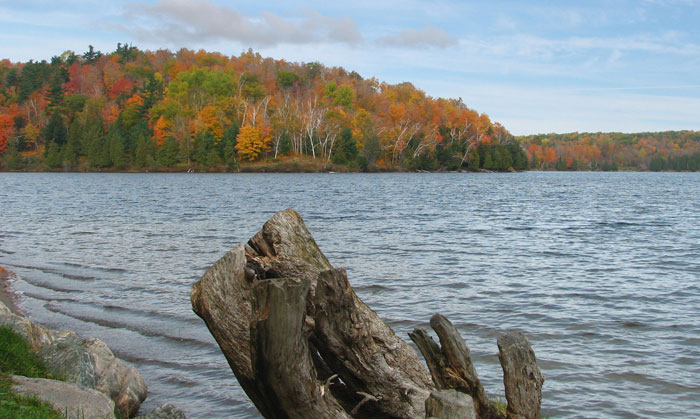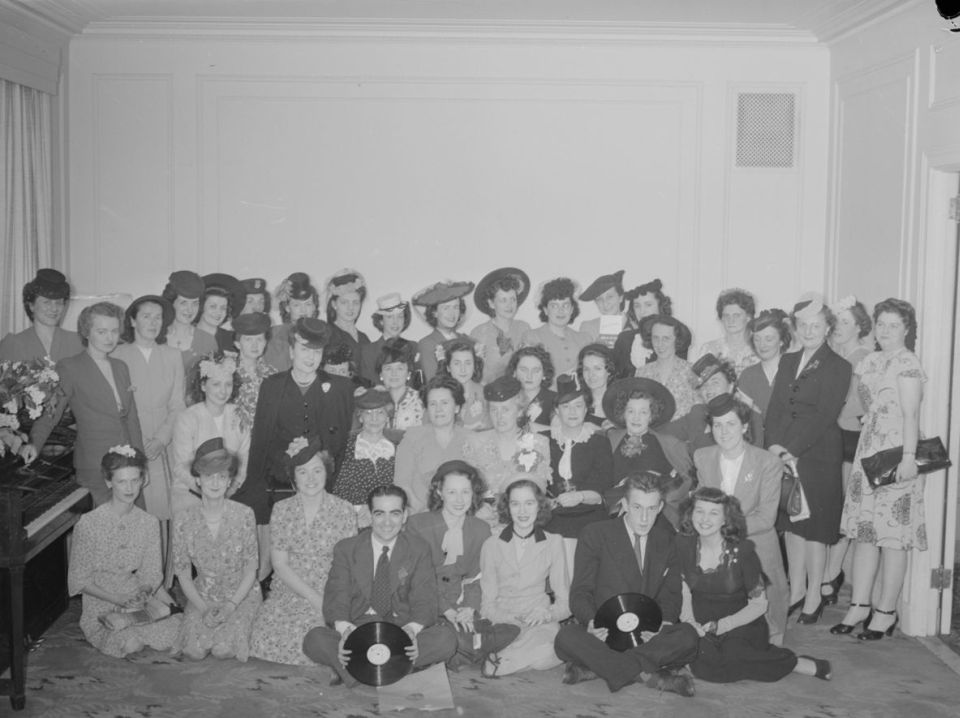|
Michel Cormier (journalist)
Michel Cormier (born 1957) is a Canadian journalist, lecturer and author. Cormier became the Bureau Chief for CBC News in Montreal (Radio-Canada) in 2012. He was formerly the CBC News foreign correspondent based in Beijing, China. Cormier was a foreign correspondent for CBC News in Moscow from 2000 to 2004, Paris from 2004 to 2006, and Beijing from 2006-2012. Born in Cocagne, New Brunswick in 1957, Cormer received his bachelor's degree in journalism from Carleton University in 1979 and a Master's degree in political science (foreign policy studies) from Laval University in 1986. Cormier began broadcasting career in Moncton, New Brunswick at Radio-Canada. Between 1979 and 1983, he worked as a news and current affairs reporter for television. From 1986 to 1989, he was based in Montreal, Quebec, where he produced documentaries for '' Présent-Dimanche'', Radio-Canada's weekly current affairs show. Cormier earned the Judith-Jasmin Award for best feature reporting. In 1989, he le ... [...More Info...] [...Related Items...] OR: [Wikipedia] [Google] [Baidu] |
Cocagne, New Brunswick
Cocagne () is a Canadian community, formerly part of an eponymous local service district (LSD) and later incorporated rural community, in Kent County, New Brunswick. History It was named after Cockaigne, a mythical paradise in medieval French literature. It is located at the mouth of the Cocagne River on the Northumberland Strait. William Francis Ganong identified the Mi'kmaq name as ''Wijulmacadie'', referring to a plant found along the river. In 1866 Cocagne was a farming community with about 65 families: in 1871 the community and surrounding district had a population of 900: in 1898 Cocagne was a sub-port of entry with a population of 250. A post office branch has been located here since 1837. On 1 January 2023, the rural community of Cocagne amalgamated with all or part of six LSDs to form the new rural community of Beausoleil. The community's name remains in official use, as do those of other communities within the former rural community. Geography The community i ... [...More Info...] [...Related Items...] OR: [Wikipedia] [Google] [Baidu] |
Moncton
Moncton (; ) is the most populous city in the Provinces and territories of Canada, Canadian province of New Brunswick. Situated in the Petitcodiac River Valley, Moncton lies at the geographic centre of the The Maritimes, Maritime Provinces. The city has earned the nickname "Hub City" because of its central inland location in the region and its history as a railway and land transportation hub for the Maritimes. As of the 2021 Census, the city had a population of 79,470, a metropolitan population of 157,717 and a land area of . Although the Moncton area was first settled in 1733, Moncton was officially founded in 1766 with the arrival of Pennsylvania German immigrants from Philadelphia. Initially an agricultural settlement, Moncton was not incorporated until 1855. It was named for Lt. Col. Robert Monckton, the British officer who had captured nearby Fort Beauséjour a century earlier. A significant wooden shipbuilding industry had developed in the community by the mid-1840s, allow ... [...More Info...] [...Related Items...] OR: [Wikipedia] [Google] [Baidu] |
Reform Party Of Canada
The Reform Party of Canada (french: Parti réformiste du Canada) was a right-wing populist and conservative federal political party in Canada that existed under that name from 1987 to 2000. Reform was founded as a Western Canada-based protest movement that eventually became a populist conservative party, with strong Christian right influence and social conservative elements. It was initially motivated by the perceived need for democratic reforms and by profound Western Canadian discontent with the Progressive Conservative Party (PC Party). Led by its founder Preston Manning throughout its existence, Reform was considered a populist movement that rapidly gained popularity and momentum in Western Canada. In 1989, the party won its first-ever seat in the House of Commons before making a major electoral breakthrough in the 1993 federal election, when it successfully supplanted the PCs as the largest conservative party in Canada. In opposition, the party advocated for spending r ... [...More Info...] [...Related Items...] OR: [Wikipedia] [Google] [Baidu] |
Charlottetown Accord
The Charlottetown Accord (french: Accord de Charlottetown) was a package of proposed amendments to the Constitution of Canada, proposed by the Canadian federal and provincial governments in 1992. It was submitted to a public referendum on October 26 and was defeated. Background The Statute of Westminster (1931) gave Canada legislative independence from the United Kingdom. Canada requested that the British North America Acts (the written portions of the Constitution of Canada) be exempted from the statute because the federal and provincial governments could not agree upon an amending formula for the acts. Negotiations between Ottawa and the provinces were finally successful in 1981, allowing Canada to patriate its constitution by passing the ''Canada Act 1982'', which included the ''Constitution Act, 1982'' and the Charter of Rights and Freedoms, and finally established an amending formula for the Canadian Constitution. These constitutional changes had the consent of all provincia ... [...More Info...] [...Related Items...] OR: [Wikipedia] [Google] [Baidu] |
Meech Lake Accord
The Meech Lake Accord (french: Accord du lac Meech) was a series of proposed amendments to the Constitution of Canada negotiated in 1987 by Prime Minister Brian Mulroney and all 10 Canadian provincial premiers. It was intended to persuade the government of Quebec to symbolically endorse the 1982 constitutional amendments by providing for some decentralization of the Canadian federation. The proposed amendments were initially popular and backed by nearly all political leaders. However, former Prime Minister Pierre Trudeau, feminist activists, and Indigenous groups raised concerns about the lack of citizen involvement in the Accord's drafting and its future effects on Canadian federalism, and support for the Accord began to decline. Changes in government in New Brunswick, Manitoba, and Newfoundland brought ministries to power that declined to accept the Accord. Further negotiations were conducted but tension increased between Quebec and the predominantly English-speaking provinces. ... [...More Info...] [...Related Items...] OR: [Wikipedia] [Google] [Baidu] |
Ottawa
Ottawa (, ; Canadian French: ) is the capital city of Canada. It is located at the confluence of the Ottawa River and the Rideau River in the southern portion of the province of Ontario. Ottawa borders Gatineau, Quebec, and forms the core of the Ottawa–Gatineau census metropolitan area (CMA) and the National Capital Region (NCR). Ottawa had a city population of 1,017,449 and a metropolitan population of 1,488,307, making it the fourth-largest city and fourth-largest metropolitan area in Canada. Ottawa is the political centre of Canada and headquarters to the federal government. The city houses numerous foreign embassies, key buildings, organizations, and institutions of Canada's government, including the Parliament of Canada, the Supreme Court, the residence of Canada's viceroy, and Office of the Prime Minister. Founded in 1826 as Bytown, and incorporated as Ottawa in 1855, its original boundaries were expanded through numerous annexations and were ultimately ... [...More Info...] [...Related Items...] OR: [Wikipedia] [Google] [Baidu] |
Sunday Morning (radio Program)
''Sunday Morning'' was a Canadian radio news and information program, which aired on CBC Radio One from 1976 to 1997."Going gently into that good night". ''The Globe and Mail'', June 14, 1997. Created by producer Mark Starowicz as a "'' Sunday New York Times'' of the air","CBC radio launches blockbuster with Mackenzie King talking to ghosts". ''The Globe and Mail'', November 6, 1976. the magazine style program was one of the highest-budget and highest-rated shows on CBC Radio during its run. Although the program's centrepiece was radio documentaries,"Back to three hours on Sunday Morning". ''The Globe and Mail'', September 8, 1990. the show also featured interviews, round table discussions, book reviews, arts reports, puzzles and various features designed to resemble an audio version of a high-end newspaper. History The program was launched in 1976 with Bronwyn Drainie and Bruce Rogers as hosts. Rogers was replaced after several months by Warner Troyer. In 1979, Troyer reduced ... [...More Info...] [...Related Items...] OR: [Wikipedia] [Google] [Baidu] |
CBC Radio
CBC Radio is the English-language radio operations of the Canadian Broadcasting Corporation. The CBC operates a number of radio networks serving different audiences and programming niches, all of which (regardless of language) are outlined below. English CBC Radio operates three English language networks. *CBC Radio One - Primarily news and information, Radio One broadcasts to most communities across Canada. Until 1997, it was known as "CBC Radio". * CBC Music - Broadcasts an adult music format with a variety of genres, with the classical genre generally restricted to midday hours. From 2007 to 2018, it was known as "CBC Radio 2". *CBC Radio 3 - Broadcasts a youth-oriented indie rock format on Internet radio and Sirius XM Radio. Some content from Radio 3 was also broadcast as weekend programming on Radio Two until March 2007. The inconsistency of branding between the word "One" and the numerals "2" and "3" was a deliberate design choice on CBC's part and is not an error, though ... [...More Info...] [...Related Items...] OR: [Wikipedia] [Google] [Baidu] |
Documentaries
A documentary film or documentary is a non-fictional motion-picture intended to "document reality, primarily for the purposes of instruction, education or maintaining a historical record". Bill Nichols has characterized the documentary in terms of "a filmmaking practice, a cinematic tradition, and mode of audience reception hat remainsa practice without clear boundaries". Early documentary films, originally called "actuality films", lasted one minute or less. Over time, documentaries have evolved to become longer in length, and to include more categories. Some examples are educational, observational and docufiction. Documentaries are very informative, and are often used within schools as a resource to teach various principles. Documentary filmmakers have a responsibility to be truthful to their vision of the world without intentionally misrepresenting a topic. Social-media platforms (such as YouTube) have provided an avenue for the growth of the documentary-film genre. Thes ... [...More Info...] [...Related Items...] OR: [Wikipedia] [Google] [Baidu] |
Television Production
A television show – or simply TV show – is any content produced for viewing on a television set which can be broadcast via over-the-air, satellite, or cable, excluding breaking news, advertisements, or trailers that are typically placed between shows. Television shows are most often scheduled for broadcast well ahead of time and appear on electronic guides or other TV listings, but streaming services often make them available for viewing anytime. The content in a television show can be produced with different methodologies such as taped variety shows emanating from a television studio stage, animation or a variety of film productions ranging from movies to series. Shows not produced on a television studio stage are usually contracted or licensed to be made by appropriate production companies. Television shows can be viewed live (real time), be recorded on home video, a digital video recorder for later viewing, be viewed on demand via a set-top box, or streamed over the i ... [...More Info...] [...Related Items...] OR: [Wikipedia] [Google] [Baidu] |




